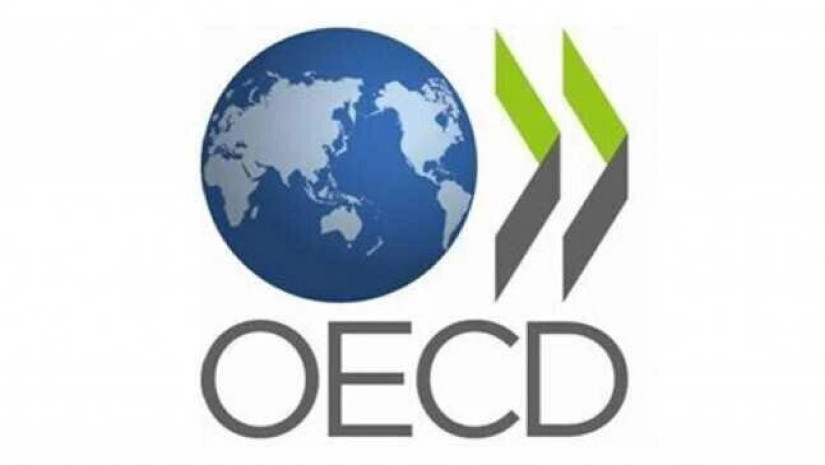The coronavirus outbreak will have a major impact on economic growth worldwide this year, the OECD warned today as it lowered its global GDP forecast by half a percentage point to 2.4%.
This is the lowest rate since the 2008-09 financial crisis.
That forecast assumes the virus outbreak fades this year, but a more severe outbreak "would weaken prospects considerably", the group of free-market economies said.
Already the global economy risks an outright contraction in the first quarter, the OECD said, in its first comprehensive study of the impact on the world's major economies.
In today's Economic Outlook, the OECD said governments need to "act swiftly and forcefully" to overcome the coronavirus and its economic impact.
Governments need to ensure effective and well-resourced public healthcare measures to prevent infection and contagion are in place, the OECD urged.
It also said that healthcare workers and systems need to be supported, while the incomes of vulnerable social groups and businesses need to be protected during the outbreak.
If the situation continues, the OECD said that co-ordinated multilateral actions will be needed for containment and mitigation.
Fiscal spending would be the most effective means of supporting confidence and incomes, it added.
In China, where the virus dubbed COVID-19 emerged in December, annual GDP growth is expected to reach just 4.9%, a 0.8 point drop from the OECD's original growth forecasts announced last November.
"Output contractions in China are being felt around the world," the 36-member Organization for Economic Cooperation and Development said, as the outbreak continues to batter production, trade, tourism and business travel.
Efforts to contain the virus in China have entailed quarantines and work and travel restrictions that caused delays in restarting factories after the Lunar New Year holiday, as well as sharp cutbacks in service sector activities.
A virtual cessation of outbound tourism from China represented "a sizeable near-term adverse demand shock," the OECD added.
Nearly 90,000 people have been infected in over 60 countries, and more than 3,000 people have been killed as governments scramble to keep the outbreak from spiralling into a pandemic.
Meanwhile, the IMF and the World Bank Group have said they stand ready to help member countries address the human tragedy and economic challenge posed by the COVID-19 virus.
"We are engaged actively with international institutions and country authorities, with special attention to poor countries where health systems are the weakest and people are most vulnerable," said Kristalina Georgieva, the Managing Director of the IMF and David Malpass, the President of the World Bank Group.
"We will use our available instruments to the fullest extent possible, including emergency financing, policy advice, and technical assistance."
"In particular, we have rapid financing facilities that, collectively, can help countries respond to a wide range of needs. The strengthening of country health surveillance and response systems is crucial to contain the spread of this and any future outbreaks."
The organisations added that international cooperation is essential to deal with the impact of the COVID-19 virus.
"The IMF and the World Bank Group are fully committed to provide the support that people in our member countries expect from us," the said.











